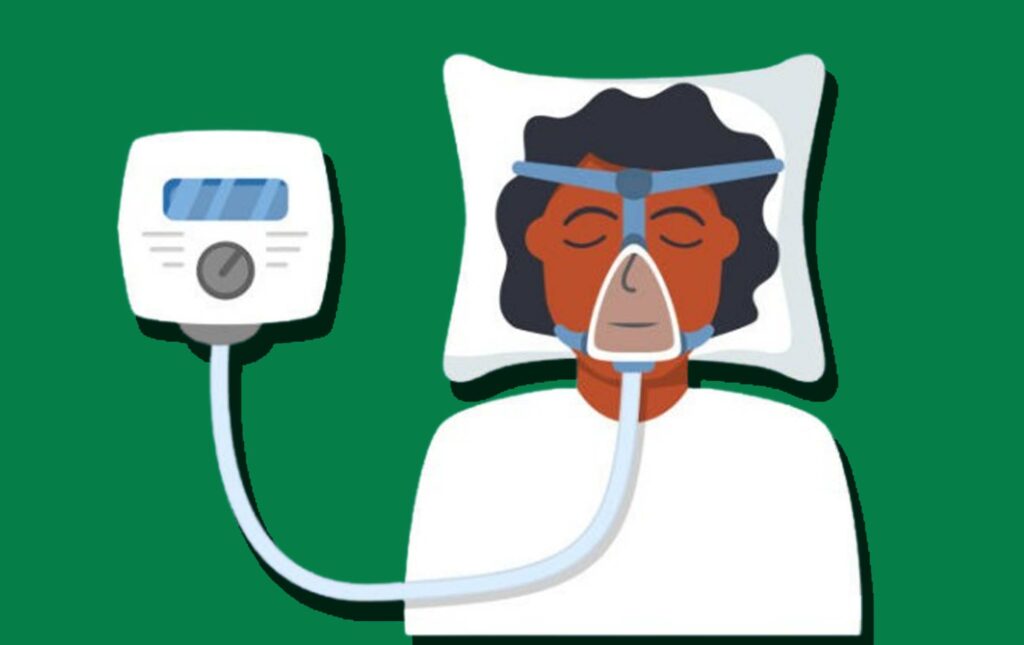Yes, sleep apnea can typically affect your life insurance rates, depending on the insurance company you are working with. Sleep apnea is a common sleep disorder marked by breathing problems while you sleep, which can greatly impact your life insurance rates and other areas of your health. Most insurance companies consider the applicant’s general health and risk factors when setting premiums.

Because sleep apnea is linked to major health disorders, including diabetes, heart disease, and stroke, it is frequently viewed as a potential risk. People diagnosed with sleep apnea may therefore be subject to increased premiums or more scrutiny throughout the underwriting process. However, it is important to note that having sleep apnea does not disqualify you from getting life insurance.
What Is Sleep Apnea?
Sleep apnea is typically a breathing disorder that makes it difficult for people to breathe properly while sleeping. The causes of sleep apnea vary among different people, but recurring breathing restrictions are an indicator of sleep apnea. Most people who experience sleep apnea are often faced with paused breathing while sleeping, and this can cause severe health issues if the blood oxygen level drops.
What Are The Symptoms Of Sleep Apneas?
Here are common symptoms of sleep apnea:
- Loud snoring
- Daytime sleeping
- Morning headache
- Gasping for air while sleeping
- Shallow breathing
- Difficulty staying asleep.
- Night sweats
- Frequent nighttime urination
- Dry mouth or sore throat
- Restless sleep
- Insomnia
These are the common signs of sleep apnea. If you realize you are suffering from sleep apnea, it is important to seek medical advice for a proper diagnosis and treatment option from a certified healthcare provider.
Can You Get Life Insurance With Sleep Apnea?
Of course, you can! While your premium may most likely be on the high side, having sleep apnea does not disqualify you from getting life insurance. Even with this sleeping disorder, many insurance companies are willing to offer coverage, but since it is considered a health condition, you will need to undergo scrutiny by the insurer.
Depending on your application and the insurance company, you may be approved or denied for life insurance coverage. When determining whether you qualify for life insurance coverage or not, the insurer will consider factors like
- Age
- Height and weight
- Date of diagnosis
- Type of sleep apnea
- Severity of the disorder
- Alcohol use
- Smoking history
- Compliance with treatment
- Date of last sleep study
These are some of the major factors insurance companies put into consideration to determine how to set your life insurance premiums.
Does Sleep Apnea Affect Life Insurance Rates?
As said before, sleep apnea is a health condition, and as a result of this, life insurance rates will most likely be affected. If the insurance companies discover that your sleep apnea is severe, expect to pay a higher premium. On the other hand, the rate may be reasonable and standard for someone who does not have major symptoms and has complied with treatments.
Insurers view sleep apnea as a health risk that can result in major difficulties; it can have a considerable impact on life insurance rates. Because sleep apnea is linked to an increased risk of heart disease, stroke, and other health problems, those with a diagnosis of the illness may pay higher premiums when applying for life insurance.
The effect on premiums, however, can differ significantly depending on the insurer and the situation. Some insurance companies may be lenient, particularly if the candidate exhibits good health and follows treatment guidelines. Others might enforce more stringent underwriting standards, which could result in increased rates or exclusions.
Since every insurance company has different standards for assessing sleep apnea and the risks associated with it, people with the disease must shop about and compare rates from several providers.
What Information Will I Disclose About My Sleep Apnea When Applying for Life Insurance?
If you have sleep apnea and you intend to apply for life insurance, highlighted below is some information you have to share with the insurer:
- Date of diagnosis
- Treatment history
- Medical history
- Family history
- Lifestyle habits, such as smoking or alcohol use
- Information about regular follow-up appointments with your doctor.
What If I’m Denied Coverage for Having Sleep Apnea?
Although most insurance will not deny you coverage simply because you have sleep apnea, there are rare cases where some insurers may not approve coverage. In a situation like this, there are several options you can explore. One of the first things to do is to revisit your treatment plan. It is advisable to work closely with a doctor so you can keep track of your improvement so far.
You can also consider getting guaranteed issue life insurance if you were denied coverage due to sleep apnea. This type of insurance is typically designed for individuals who are unable to qualify for life insurance due to one health issue or the other. The policy is more accessible compared to traditional life insurance.
Furthermore, you can take advantage of group life insurance. Several organizations offer group life insurance for their employees at a very low rate. This is often part of the perks you enjoy from working with the organization; you can utilize this to ensure you are adequately covered if anything were to happen.



